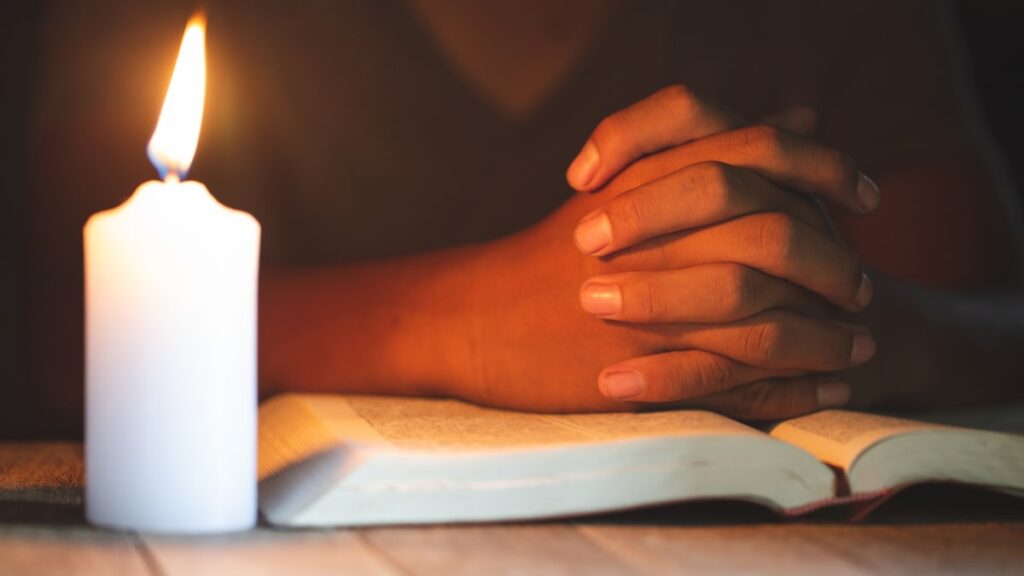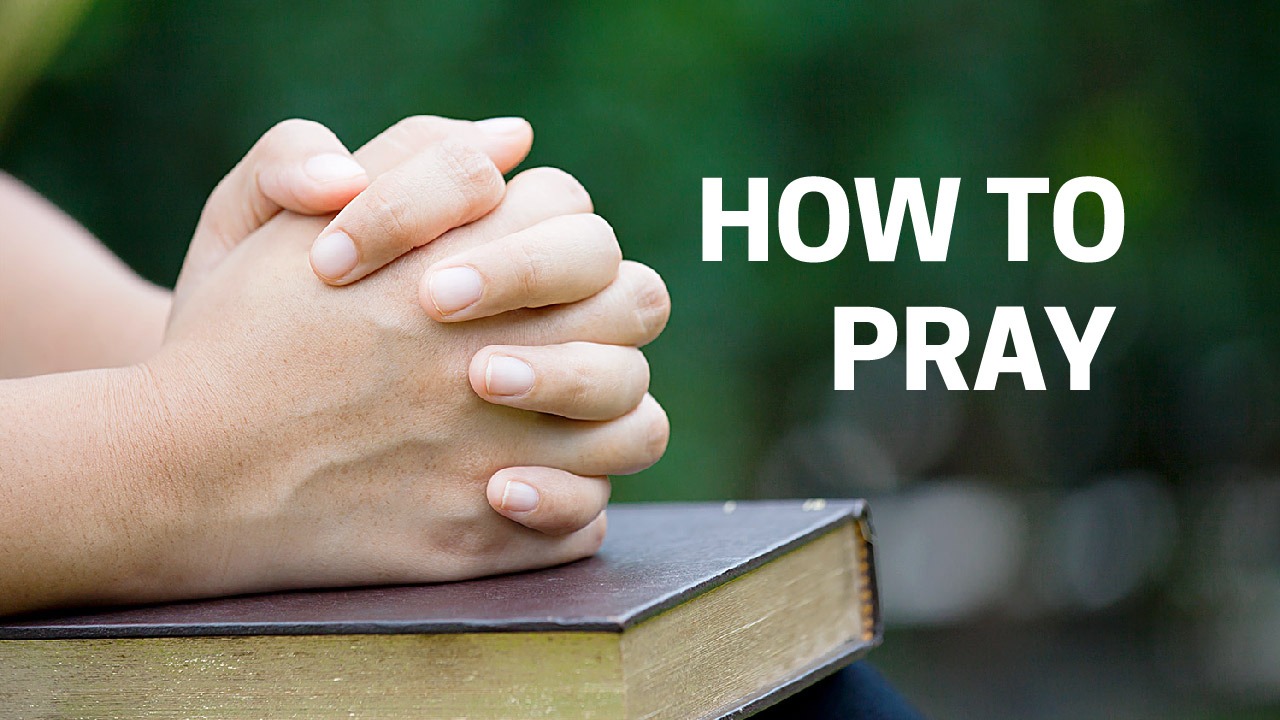The way you pray can vary significantly depending on your religious or spiritual beliefs. Different religions and belief systems have their own traditions and practices for prayer. Here, I’ll provide a general guideline on how to pray, which you can adapt to your specific faith or spirituality:

- Set the Atmosphere: Find a quiet and peaceful place where you can concentrate and connect with your higher power or the divine. Some people like to light candles, burn incense, or use other ritual objects to create a sacred atmosphere.
- Focus Your Mind: Take a few moments to clear your mind of distractions. You can do this through deep breaths or a short meditation to center yourself.
- Choose a Posture: Depending on your tradition or personal preference, you can pray while kneeling, sitting, standing, or even lying down. The key is to find a posture that allows you to feel comfortable and focused.
- Begin with Gratitude: Many prayers start with expressions of gratitude for the blessings and gifts in your life. Take a moment to reflect on what you’re thankful for.
- Address the Divine: Start your prayer by addressing the higher power or deity you believe in. You can use titles like “God,” “Lord,” “Allah,” or any other term that aligns with your beliefs.
- Speak from the Heart: Express your thoughts, feelings, and intentions sincerely. You can do this silently in your mind or verbally if you prefer. Share your concerns, joys, sorrows, and any requests you may have.
- Seek Guidance and Strength: If you’re facing challenges or decisions, ask for guidance and strength to navigate them. If you’ve made mistakes, seek forgiveness.
- Listen and Reflect: After you’ve spoken, take some time to listen in silence. Some people believe that this is when you may receive guidance or insight from the divine.
- Close the Prayer: Conclude your prayer with a closing statement, which can be as simple as “Amen” or another phrase that feels appropriate to you. This signifies the end of your communication.
- Practice Regularly: Prayer is often most effective when it becomes a regular part of your life. Establish a routine that works for you, whether it’s daily, weekly, or on special occasions.
- Study and Learn: If you belong to a specific religious tradition, consider studying and learning from your religious texts or seeking guidance from religious leaders or mentors within your faith for more specific practices and guidance on prayer.
Remember that prayer is a deeply personal and spiritual practice, and there’s no one-size-fits-all approach. Your way of praying should align with your beliefs and values. If you belong to a specific religious tradition, it’s often helpful to consult with leaders or teachers in your faith community to learn more about the specific prayers and practices associated with your religion.



Everything is very open with a precise description of the challenges.
It waas rezlly informative. Your website is useful.
Thank you for sharing!
Everything is very open with a precise description of the challenges.
It was really informative. Your website is useful.
Thank you for sharing!